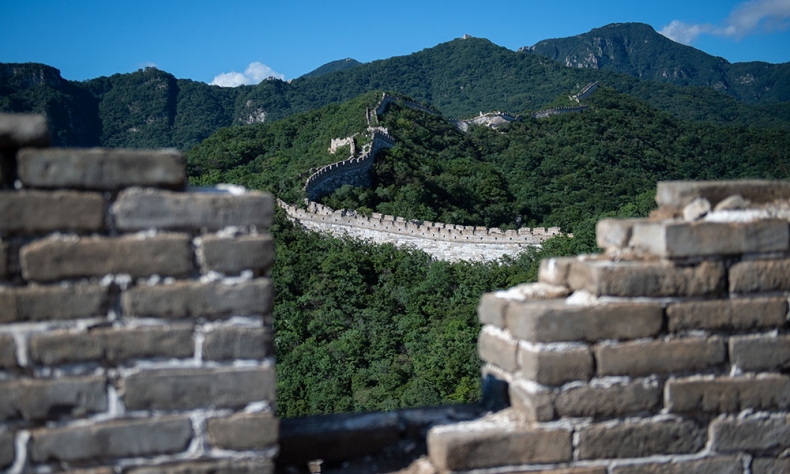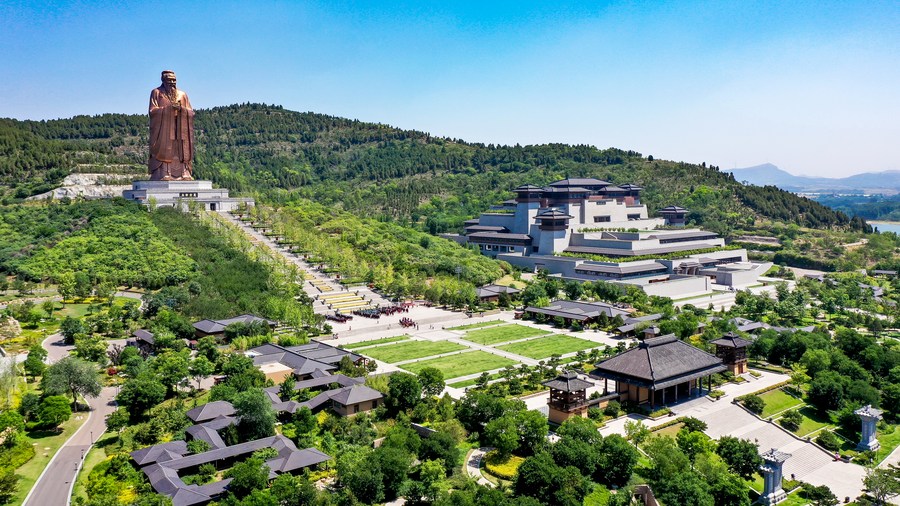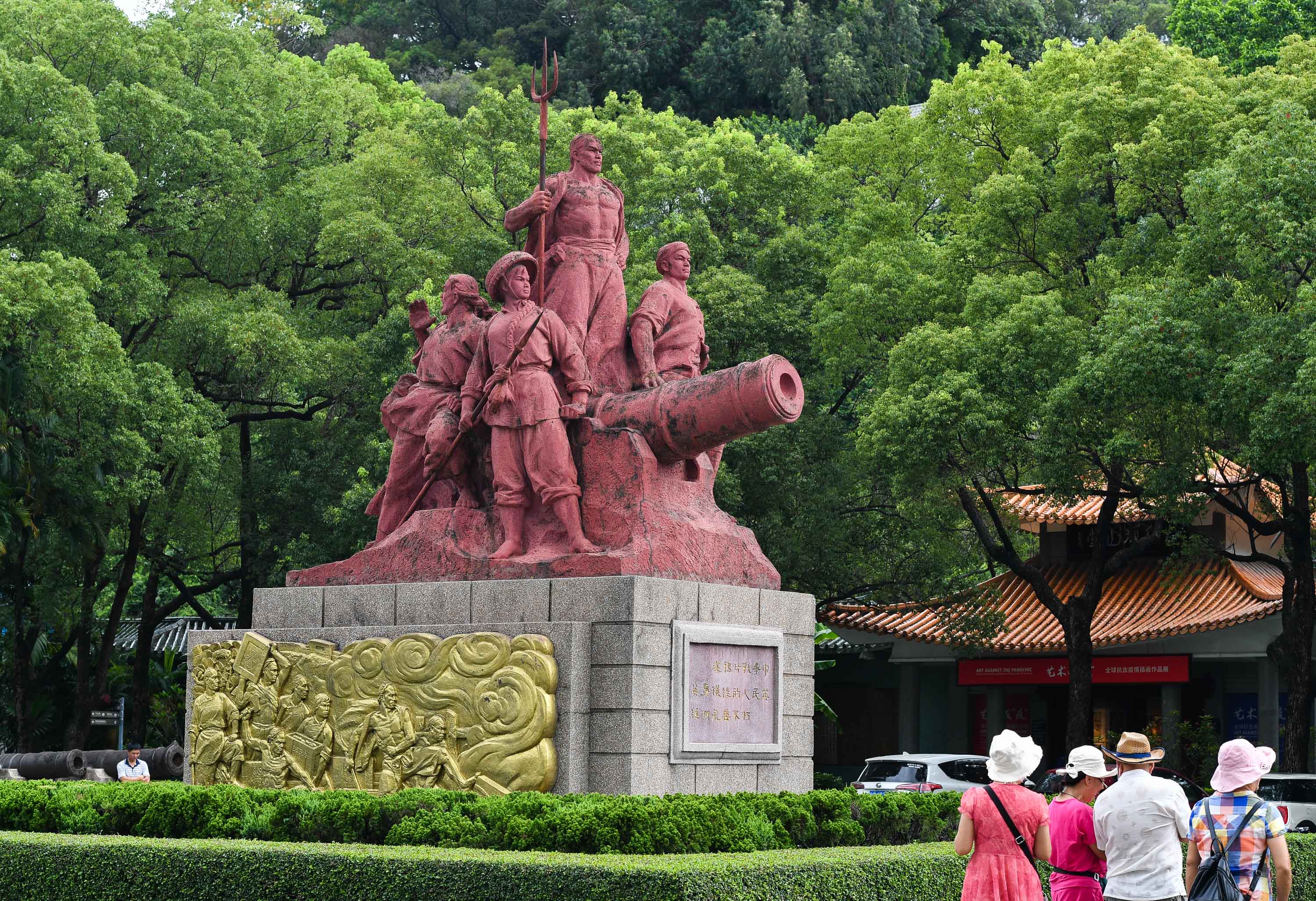Our Country, Our World

Throughout history, the idea ‘everyone has responsibilities toward their nation’ has effectively promoted the development of the Chinese civilization and played a major role in forming China’s national characteristics.
“Everyone has a responsibility for the future of their country,” wrote famous scholar Gu Yanwu (1613-1682) of the late Ming (1368-1644) and early Qing (1644-1911) dynasties in his book, Rizhilu, or literally Notes on Knowledge Accumulated from Day to Day. In the centuries following its publication, this notion became integral to Chinese culture, encapsulating Chinese patriotism and providing moral fortitude to the Chinese people’s resistance against foreign invasion. Today, it continues to inspire the Chinese people to work for strengthening their country and contributing to its prosperity.
This notion has a long, deep-rooted history in ancient Chinese literature. “Fear not the want of armor, for mine is also yours to wear,” reads a poem in the Book of Songs, the earliest collection of Chinese poetry (dating back to 11th-sixth century B.C.). Throughout history, the idea that “everyone has responsibilities toward their nation” has been expressed in political practices and expounded by thinkers from generation to generation, gaining greater profundity over time.
The Chinese people have always valued family and nation, regarding them as inseparable. Over the past thousands of years, numerous Chinese families passed wisdom and wholesome parables for later generations, constituting a philosophy governing family life. When all members perform their respective duties, and love, respect, and support each other, the family will live in peace and happiness. Family is the cell of a country, which consists of millions of families who all share weal and woe together. That is why the Chinese word for country (nation or state) is a combination of the Chinese characters of country (nation or state) and family.
Mencius said, “Countries are the foundation of the world; families are the foundation of a country; and people are the foundation of their families.” The fate of all individuals is intertwined with that of their country. This is why in modern times, the Chinese people often draw similitudes between country and motherhood.
In ancient China, it was a core tenet of governance that the monarch and his subject must perform their respective moral responsibilities. Confucius argued that the ruler should respect his people, while the people should be loyal to their leader. Only a healthy relationship between the ruler and the people leads to peace and prosperity in the country. In times of crisis, people from all walks of life, including merchants — considered in ancient times to be of the lowest social group — would step forward to save their country.

An example was recorded by the great historian Zuo Qiuming (502-422 B.C.) in his commentary Zuozhuan. In 637 B.C., an army of the state of Qin led by General Meng Ming marched toward the state of Zheng to launch a surprise attack with the help of spies positioned there. Upon entering the state of Hua, which neighbored the Zheng state, the procession alerted Xian Gao, a cattle trader from the state of Zheng. To buy time to send a warning message to his home state, Xian Gao disguised himself as a Zheng envoy. He went to the Qin army and offered four cowhides and 12 cattle as gifts. He told the general, “On hearing that you would pass our state, His Highness sent me to bring you these gifts and a message. Although we are a small state with modest means, we will provide your army with food and other supplies throughout your stay. If you only spend one night there, we will provide security during the night.” These words led Meng Ming to believe that the state of Zheng was well prepared, and hence canceled the attack. The army returned to the state of Qin after annexing the Hua state.
Xian Gao’s ruse gave the state of Zheng enough time to root out Qin’s spies and make preparations for defense. When the duke offered to reward him, he refused, saying, “It is all too natural for a merchant to be loyal to his state. If Your Highness rewards me for this, don’t you treat me as an alien?”
This sense of responsibility toward their nation runs deep in the blood of the Chinese people. As early as the time of the legendary emperors of Yan and Huang, the people of Huaxia, early habitants of the Central Plains that later evolved into the Han ethnic group, fought as one when other tribes invaded their territory. In late Song Dynasty (960-1279) and late Ming Dynasty (1368-1644), imperial rulers of the Central Plains were under the threat of their nomadic neighbors. Many patriotic heroes, such as Yue Fei (1103-1142), Wen Tianxiang (1236-1283) and Gu Yanwu (1613-1682), put themselves on the line to resist the enemy, with many even giving the ultimate sacrifice for their emperor.
In modern times, the Chinese nation stood united when confronted with foreign aggression, with every son and daughter of the Chinese nation performing their duties and doing their bit in the resistance.
In the 19th century, the British Empire forced open the door of China with the opium trade. The then Qing emperor sent Lin Zexu (1785-1850) to the coastal province of Guangdong to stop this narcotic drug from flooding into China. There he told local officials, “I will not return before opium is eradicated. I swear to follow through with my mission, and will never stop halfway.”
To bribe Lin, one day, Charles Elliot, representative of British opium traders, presented him a “small gift” — a jeweled opium smoking set and other valuable objects that would cost at least 100,000 pounds. Lin flatly rejected the gift, saying, “I came to Guangdong to wipe out the opium scourge at the order of His Majesty. This opium set is contraband, and should be confiscated. But for the sake of the friendship between our two countries, you can take it back to your country and display it in your museum.”

Under the leadership of Lin, a total of 1,188,127 kilograms of opium was seized and later set on fire in Humen, a town in today’s Dongguan City. It took 23 days to destroy such a massive quantity of opium. This feat, however, only met with criticism in the imperial court, and Lin was soon exiled to Ili in west Xinjiang. When departing for the frontier region, he wrote a poem, lines of which read, “Were it to benefit my country I would lay down my life; What then is risk to me?” This sentiment has been shared by millions of the Chinese people of later generations who devotedly commit themselves to the cause of national rejuvenation.
The notion that “everyone has a responsibility for the future of their country” echoes the sense of a community of shared future for humanity. Confucius advocates that the love for one’s family should be extended to love for friends and further to all people. Mencius said, “If I don’t work for good governance of this world, who else will?” It requires the joint efforts of people in all countries to realize world peace.
There are more examples in recent history, in which the Chinese people dedicated themselves to the well-being of their country and the entire humanity. One of them is Yuan Longping (1930-2021), the scientist who bred high-yield hybrid rice. Thanks to Yuan’s feat, China is able to feed 22 percent of the world’s population with merely 7 percent of the world’s arable land. The technologies that Yuan developed have also been applied in dozens of countries worldwide, supporting global efforts to end hunger and reduce poverty.
Today, human civilization is facing multiple threats from wars to climate change. The sense of shared responsibility has brought together people from all over the world to work for solutions to these problems.
President Xi Jinping has emphisized the notion that “everyone has a responsibility for the future of their country” on many occasions, including the Conference on Dialogue of Asian Civilizations in 2019, the symposium commemorating the 75th anniversary of the victory of the Chinese People’s War of Resistance Against Japanese Aggression and the World Anti-Fascist War in 2020, and a symposium on cultural inheritance and development in 2023.
He stressed the importance of cultivating patriotism, bolstering national solidarity, and fostering a strong sense of community for the Chinese nation, and proposed to build a global community of shared future. As the world is undergoing unprecedented changes not witnessed in over a century, the ancient Chinese wisdom on our shared responsibility inspires us to create a better future for our country and all of humanity as well.
Song Zhenzhong is an associate researcher at the Confucius Research Institute.
 Facebook
Facebook
 Twitter
Twitter
 Linkedin
Linkedin
 Google +
Google +










